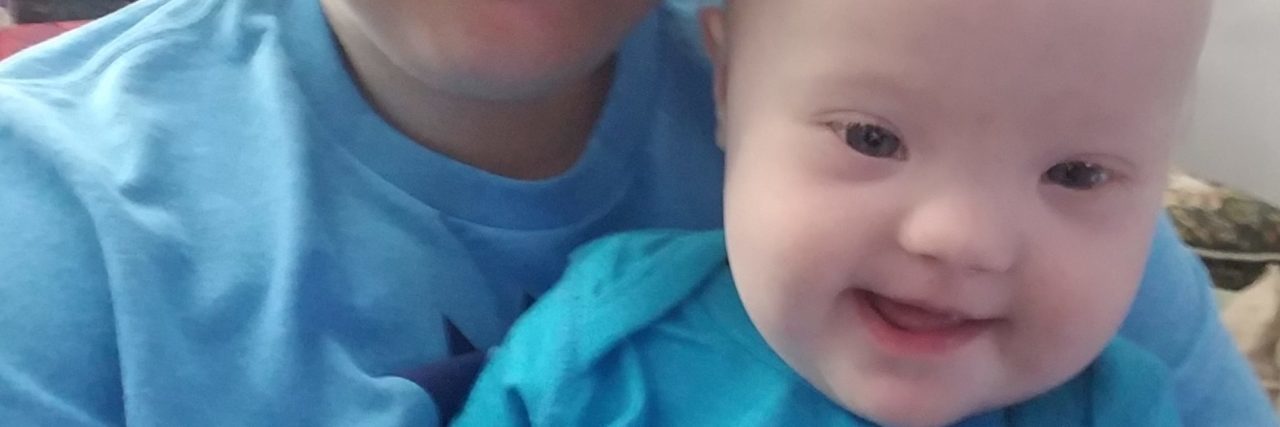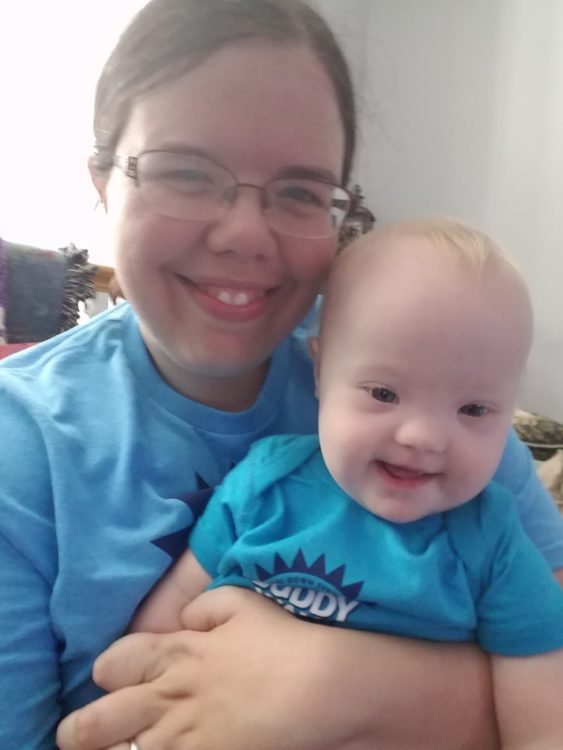There really is no manual on what to do when you find out your child has a disability. Every path is different, but I feel that there are some commonalities that many of us experience and things we can do to help make it just a little bit easier. Some of this may seem like common sense, but sometimes that is the first thing that goes out the window when you receive unexpected news.
Do you parent a child with Down syndrome? Download our free app to connect with other parents like you and find support and encouragement in the journey.
1. Feel what you feel.
The day we found out our daughter had Down syndrome was a shock. We cried. We grieved for the child we thought we would have. I was angry that our lives were being turned upside down like this and that our daughter was going to struggle with so much. I was scared that I would not be a good enough mom for her, and that I would not be able to handle the struggles this would bring. We grieved the “normal” life we had hoped for her. We grieved for ourselves, knowing this new path was going to be very different from the one we expected.
We were told by some that we should not grieve, because we were still expecting a healthy baby girl and there are many who do not ever get to meet their babies. We disagreed, and so did many of our friends who are also parents of children with disabilities. As one friend said, “It is OK to grieve; the issue comes when one cannot move past the grief.” So go ahead and grieve. Be angry, be upset, be scared, be anxious. Feel it all. Your feelings are yours and they are valid.
If you do find that you are having a difficult time moving past these feelings, then seek out additional help such as therapy or counseling. I began counseling after finding out just so that I had that help processing all it.
2. Find support.
Within a couple of days, we began researching. We reached out to our local Down syndrome Association’s Early Matter Coordinator. She met with us and gave us great information. She put us in touch with a group on Facebook that is meant for families who were having children with Down syndrome that year. We met up with other families in the group and got to meet their little ones, seeing what our future could be like.
We had friends and family reach out to us to tell us of their experience with a loved one/cousin/friend who has Down syndrome and put us in contact with their family. We realized that we were not as alone in this as we first thought we might be. We were forming our support network.
3. Avoid Google!
After the diagnosis, I went straight to Google. I wanted to know what to expect. Facts are the best thing to work with, right? Yes, but also no. The medical sites listed every possible health issue that can come with Down syndrome. My anxiety about our future and my daughter skyrocketed. My husband banned me from researching Down syndrome because it was affecting my mental health. Instead, I changed my approach. I researched “Down syndrome blogs” and came across several amazing ones. The blogs didn’t give me cold, hard medical facts. They showed me real life. They showed me the smiles and the tears, the celebrations and the milestones. They showed me what life with Down syndrome really is, not what issues there could be.
4. Find benefit programs.
One of the things we were told early on was how important early intervention is. I looked up the local Department of Developmental Disabilities and researched “Early Intervention (EI)” and found out I could put in a referral for services — so I did. They contacted me and let me know that we could not do anything until after she was born, since they need a birth date, but they did take the rest of my information. Soon after her birth, I called them back and we got the process rolling. I do think a lot of her progress has to do with the EI services she has been receiving. Her coach shows us exercises we can do to help her achieve these milestones, such as sitting, crawling, self-feeding, and soon it will be walking.
5. Apply for financial aid.
The Down syndrome diagnosis brought about a lot of fears, concerns and worries. Finances were one of them. Could we afford the care she would need as well as continue to give my older child the care he needs? Luckily, our Early Matters coordinator had a list of financial aid that we could apply for. The big two were Medicaid and financial aid through Children’s Hospital. Once we got the packet, we sat down and got to work on filling out applications. Every last dollar helps when your child sees so many doctors and departments at the hospital.
6. Organization will help give you direction.
One of the things I realized while still in the hospital was how much information the medical team will throw at you before you’ve really had a chance to process anything. I remember doctor after doctor stopping in and discussing one thing or another with us. One doctor asked if the pediatric doctor had stopped in. I said, “I honestly don’t remember. I have had a parade of people in my room ever since her birth, giving me far more information than I can take in right now.” I wish I made every doctor sign a list or something so I would at least know who I had seen.
Even after we came home and adjusted to life with a newborn again, we were getting calls to set up appointments with so many different doctors that I struggled to keep it all straight. Especially when they called to say they were requested to set up an appointment and you have no idea who requested it or what department was requested. It was around that time I put together my daughter’s medical binder. While it is still easy to get flustered by the sheer number of doctors she sees and appointments that have to happen, it was a lot easier to find the necessary information for them.
A year later, we are still adjusting things to fit the needs of our family. We are still learning, still growing and still moving forward.
A version of this story originally appeared on Raising Special Roses.


